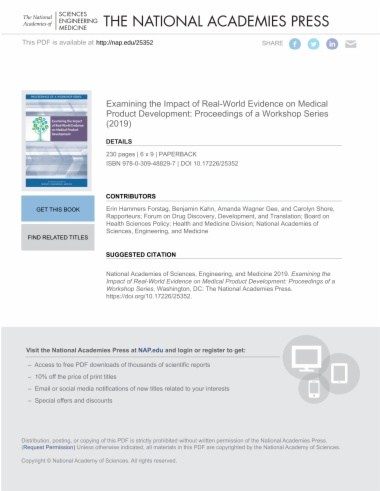

Randomized controlled trials (RCTs) have traditionally served as the gold standard for generating evidence about medical interventions. However, RCTs have inherent limitations and may not reflect the use of medical products in the real world. Additionally, RCTs are expensive, time consuming, and cannot answer all questions about a product or intervention. Evidence generated from real-world use, such as real-world evidence (RWE) may provide valuable information, alongside RCTs, to inform medical product decision making.
To explore the potential for using RWE in medical product decision making, the National Academies of Sciences, Engineering, and Medicine planned a three-part workshop series. The series was designed to examine the current system of evidence generation and its limitations, to identify when and why RWE may be an appropriate type of evidence on which to base decisions, to learn from successful initiatives that have incorporated RWE, and to describe barriers that prevent RWE from being used to its full potential. This publication summarizes the discussions from the entire workshop series.